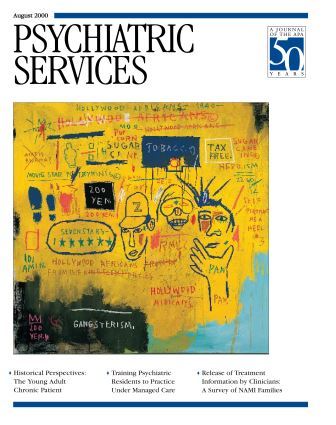Efficacy of Continuing Advocacy in Involuntary Treatment
Abstract
OBJECTIVE: The effectiveness of an experimental model of personal advocacy for involuntarily hospitalized psychiatric patients was examined. In the model, a personal advocate represented the needs and best interests of patients throughout the period of involuntary hospital treatment. METHODS: The sample consisted of 105 involuntarily hospitalized psychiatric inpatients in Canberra, Australia. Fifty-three consecutive patients received personal advocacy, which started soon after they entered the hospital and lasted through the commitment process to the time of discharge from involuntary care. The outcome of this group was compared with that of 52 consecutive patients in a control group who received routine rights advocacy from hospital entry through the commitment hearing only. RESULTS: The experimental and control groups were similar in demographic characteristics, diagnosis, and severity of illness. At the start of hospital care, satisfaction with care was similar in both groups; however, it improved significantly in the experimental group while it declined in the control group. Aftercare attendance was significantly better in the experimental group. The experimental subjects' risk of involuntary rehospitalization was less than half the risk of control subjects, and community tenure was significantly increased. Clinical staff reported that the experimental advocacy facilitated management of patients. CONCLUSIONS: Compared with routine rights advocacy, the experimental advocacy based on patients' needs and best interests, which was maintained throughout the patients' involuntary hospitalization, significantly improved patients' and staff members' experience of involuntary treatment. Better compliance with aftercare among patients receiving personal advocacy led to a statistically and economically significant reduction in rehospitalization.



